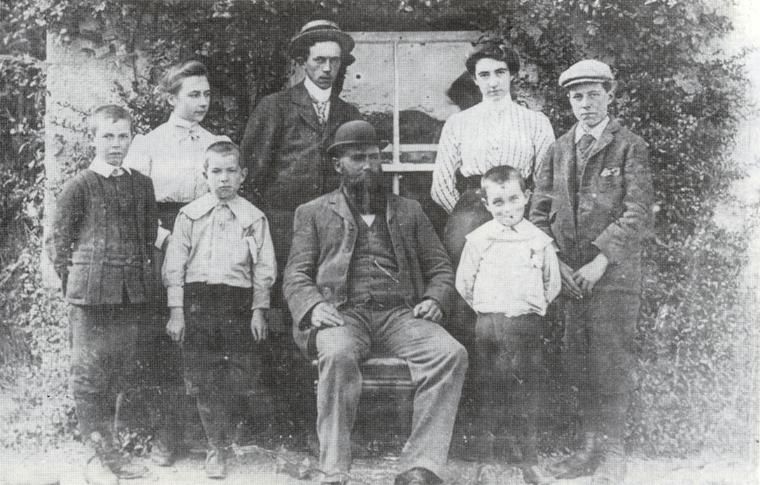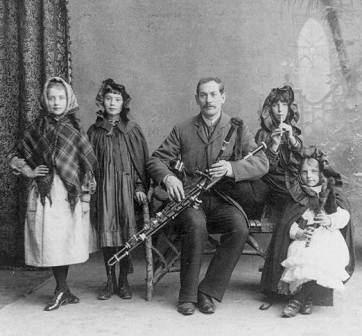
For Irish expats looking to connect with their past, there are an amazing array of online options.
Ancestry.com and FamilySearch.org
These are the biggest players in the online genealogical world, and both are loaded with indexes and records. Ancestry is fee-based, while FamilySearch is free (if you simply can’t afford Ancestry, check your local library as they may offer the institutional version for free), and it’s definitely worth using both. Their content overlaps a fair bit, but both have resources the other one doesn’t, so I tend to bounce back and forth between them during any given research session. It’s also worth noting that their indexes have often been separately created, so if you can’t find what you’re looking for at one, it may be possible to find it at the other due to a more accurate transcription. And after a little digging, you’ll soon discover that one site might have just an index for a specific collection, while the other has both an index and digitized records. At the moment, FamilySearch is the more internationally-oriented, but particularly due to a just-announced collaboration between the two, Ancestry will be beefing up its global content in the not-too-distant future. And finally, both make it possible to search other, external websites as part of a routine search, offering something of a one-stop shopping experience. For instance, a search for an ancestor at Ancestry may pop up a link to her family in the 1901 Irish census, but that link will take you out of Ancestry to the website that actually holds the record. Both contain useful content for those of Irish heritage, such as Irish Civil Registration indexes (i.e., birth, marriage and death indexes), but don’t overlook their ability to help you figure out exactly where in Ireland you should be looking! Be sure to scour resources such as passenger manifests, naturalization records, and tombstone images to identify the town of origin of your immigrant Irish. Also, once you have a specific location, make it a habit to search the catalog at FamilySearch by place and/or keyword, trying all variations of the place name you can find (e.g., townland, county, parish, etc.), as the material that FamilySearch offers online at the moment is just the proverbial tip of the iceberg. If you find that they have, say, parish records for 1850-1875 for the church your ancestors attended, either hire a Utah-based genealogist to pull the record for you or rent the microfilm to search it yourself at your closest Family History Center.
FindMyPast originated in the UK, so is strong on records from the England, Ireland, Scotland, Wales, Australia and New Zealand. In fact, you could subscribe to the Ireland-only version (FindMyPast.ie), but so many of our ancestors had family members who scattered to these other countries – or even spent some time in Liverpool or Manchester themselves before coming to America – that I find having access to the “world” version very helpful. While they don’t have as many records as the aforementioned sites, they frequently have digitized versions of original records that the others don’t.
 Census.nationalarchives.ie
Census.nationalarchives.ie
This is a great resource from the National Archives of Ireland. All the 1901 and 1911 census records have been indexed, digitized, and made available online for free. Those whose ancestors left Ireland over the last century or so will almost definitely find relatives before their departure, but even for those of us whose families emigrated earlier, it provides a window to learn about the ones who remained.
RootsIreland.ie
This site doesn’t include digitized records, but has perhaps the best index of church records for Ireland (both Republic of and Northern) you’ll find. It doesn’t quite cover the whole country (Carlow and Clare are coming soon, and plans for Cork, Kerry and Dublin City are still to be announced), but it’s as comprehensive as you’ll find at the moment. Church records are key because civil registration of births, marriages and deaths didn’t kick in until 1864, so if you had Famine-era ancestors, this website is one of your best bets. Also, if you’re one of the many who only has a county of origin for your ancestors – and you’re fortunate enough to have a few unusual names in your family – you may well be able to use the search functionality at this website to zero in on the exact location. And while I’m emphasizing baptism, marriage and burial records, please be aware that this site offers other records as well. I know when I mentioned the Cork, Kerry and Dublin gaps in the preceding website overview, many quietly growled to themselves because their ancestors hailed from at least one of these places. Well, fortunately, the Department of Arts, Heritage and the Gaeltacht offers indexes for church records for these locations – and better yet, they’re free! They also offer a helpful “main search” option (look at the menu at the top) that serves as a springboard to roughly a dozen other online resources, so you don’t have to learn and individually search all the online nooks and crannies that may hold pieces of your genealogical puzzle.
Irishnewsarchive.com
Just what you would guess from its name – a website that houses Irish digitized newspapers from around the country. Coverage varies widely by location and time frame, so it’s a bit hit or miss, but it’s always worth checking. Searching is free, but you’ll need to pay to view results. If you’re not lucky enough to have unusual names, try including a location to narrow the results.




















Leave a Comment